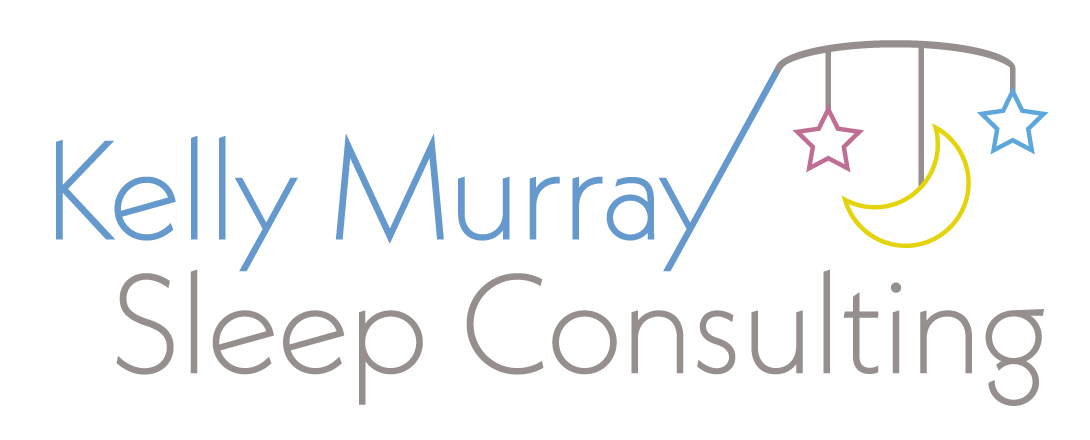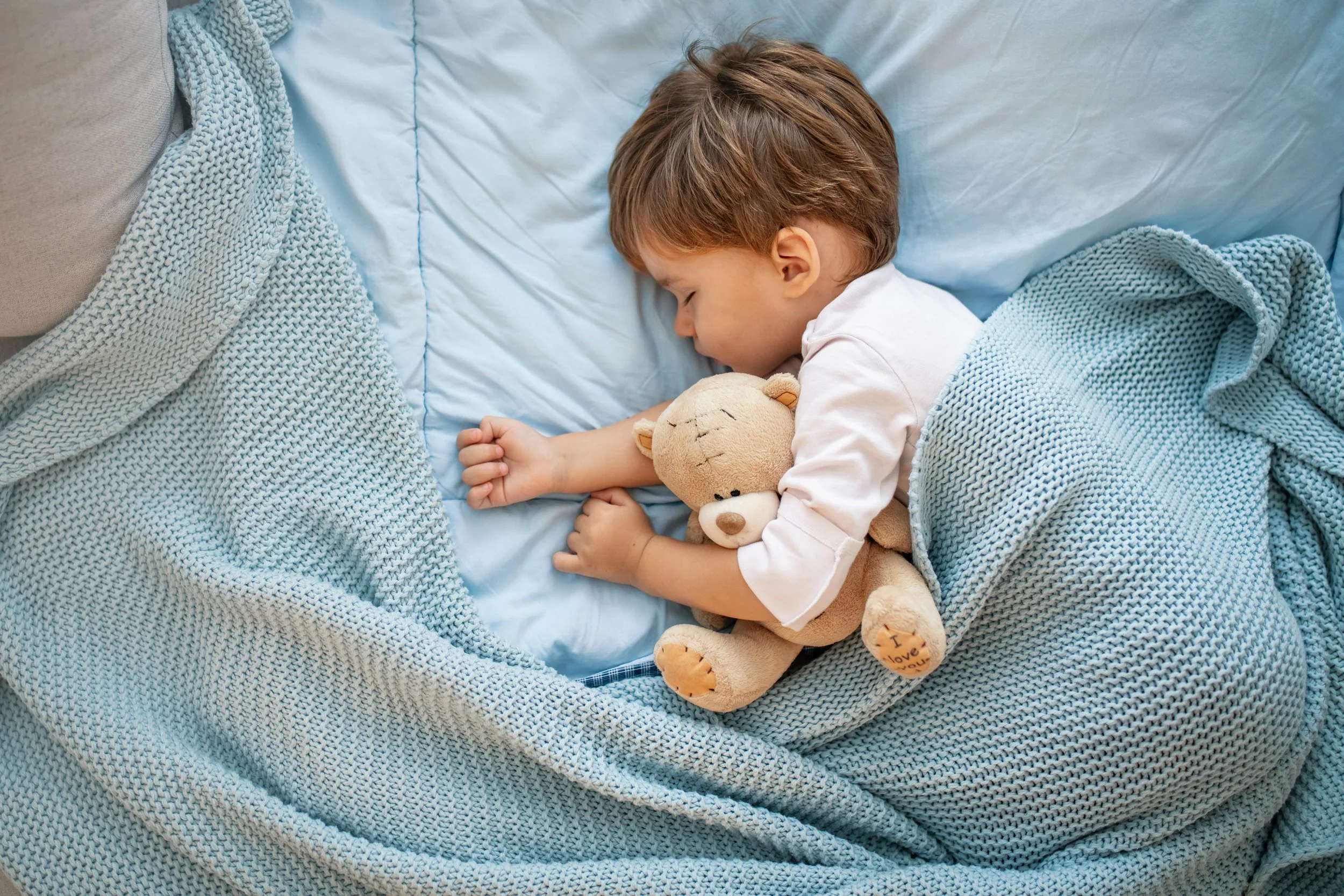I have a few tips for parents who need an answer to the question:
How do I get my baby to sleep through the night?
First, I’d encourage you to check out the post one of my fellow consultants, Katie Baker, made about how to know when your baby is ready to sleep through the night. Once you know your baby is ready to sleep through the night, you should look for and work on these four things. This is called the Sleep Equation.
The Sleep Equation
The Sleep Equation comprises four elements: environment, schedule, feeds and independent sleep skills.
Environment - Babies sleep best in rooms like caves - cool, quiet and as dark as possible.
The room temperature should be between 68 and 70 degrees (Fahrenheit). You’ll need to ensure your baby isn’t too hot or cold. I love using a Halo sleep sack - it’s what I’ve used with my kids.
Lastly, if you’re going to add a gadget to your baby’s room, it should be a noise machine, and not a night light. Night lights are not great for kids under two and a half years old. Personally, I like the brown noise settings on noise machines. Brown noise mimics the sounds of a river or a waterfall, while white noise is a harsher sound.
There are also free apps that you can download. Make sure that any noise you play through them is 60 decibels or under, and keep it at least six feet away from the baby’s head.
2. Age-Appropriate Schedule
Before 7 or 7.5 months, when the baby is on a two-nap schedule, we should follow wake windows. (You can find some great resources about wake windows here.)
Before becoming a sleep consultant, I didn’t know about wake windows. I even nicknamed my son “Stay-Awake Jake!” I thought he didn’t need to sleep, but it turned out he was overtired.
If you keep a baby awake too long, they produce cortisol, a hormone that keeps the body alert. That makes it harder for them to fall asleep and also stay asleep. Wake windows are also typically shorter than parents tend to believe they are.
An age-appropriate sleep schedule helps establish sleep rhythms and ensures your baby won’t be overtired. It also means they’ll have enough of what we call sleep pressure - which means making sure that baby isn’t under tired, either.
3. Feeding
Next, we have feeds. If the baby isn’t on solid food yet, ensure you follow your pediatrician’s guidelines about how many ounces of milk your baby should have. We also have some resources on how much milk a baby should get based on weight.
By seven months, your baby shouldn’t need a night feed. Some babies even drop that feed before reaching the seven-month mark if they’re at a healthy weight!
Continuing night feeds after a baby is seven months old can perpetuate more wake-ups. At that age, baby doesn’t need more than their milk for the day and their solids.
If you consult your pediatrician and our resources and establish a great feeding schedule, you’ll know that if your baby wakes in the middle of the night that it’s not because they’re hungry. They’re just learning to fall asleep independently!
That brings me to the last part of the Sleep Equation.
4. Make sure that baby doesn’t have any sleep props. That way, you can put them in the crib awake, not asleep.
When I first heard this, I thought, There’s no way. There’s no way my baby, “Stay-Awake Jake,” will fall asleep on his own after we put him in the crib awake. We thought we had to rock, nurse, and give him his pacifier.
It turns out that when given a chance to fall asleep independently, without those props, he learned to fall asleep by himself - even if he did protest a bit!
This means that the baby won’t require a parent, food, or a pacifier to fall back asleep. Once you’ve established that, every time your baby wakes (because everyone, even adults, wake up in the middle of the night!), they’ll be able to put themselves back to sleep.
If you put a baby down when they’re drowsy or already asleep if they wake up and they’re not in your arms or being fed, they’ll get confused. They’ll protest, because they won’t have the skill to fall asleep independently. It’s our job as parents to teach them that skill.
Sometimes it feels like you’re jumping without a net, but trust me - babies know how to fall asleep independently. We need to trust in them and ourselves and give them some space. This might involve crying, but know that crying is just the way babies communicate! When you’re consistent, they’ll be able to learn how to fall asleep independently.
Doing these four things will add up to your baby sleeping through the night.
If you’re sitting there thinking, I have so much hope but so much fear about this, and I really need help; I recommend scheduling a discovery call with a sleep consultant. We can just have a conversation, and we’ll walk you through our process so you can decide if it’s a good fit.
Working with a sleep consultant has transformed my life. Helping families as their Sleep Consultant has changed my life. Don’t hesitate to reach out to chat about your situation. If you plan to try these four things, we’ll be there every step of the way.
I hope this helps. Cheers to long nights of sleep ahead!




